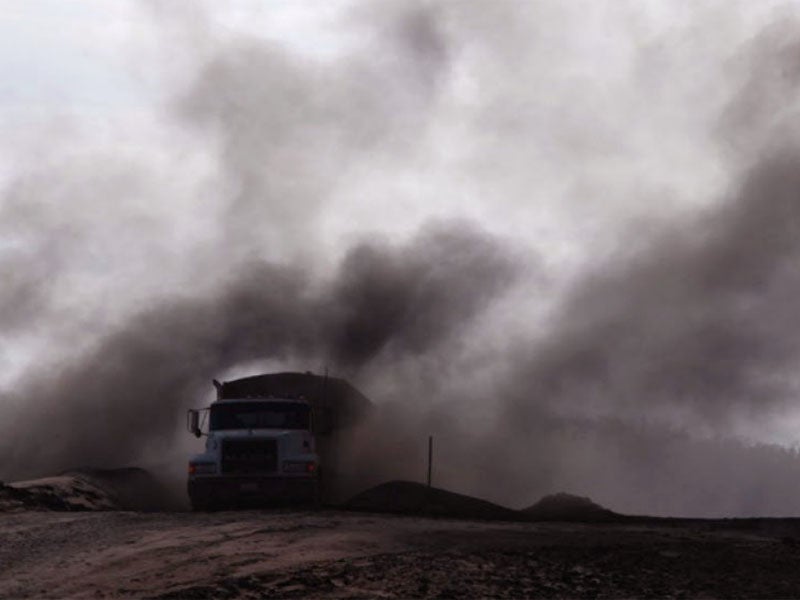As Spreading of Toxic Coal Ash Increases, Groups Oppose Reviving EPA Promotional Reuse Program
EPA considering reviving previously shut down program that promoted coal ash reuse, after Inspector General found EPA had not verified that promoted reuses were safe
Contact
Following industry requests that EPA revive an ill-fated partnership to “promote” the reuse of toxic coal ash, 13 public health and environmental groups today sent a letter urging EPA not to revive that controversial program and to complete a long-delayed study of historical coal ash fill sites as well as evaluate the risks of coal ash reuses.
The placement of toxics-laden coal ash at fill sites has skyrocketed 23% percent following the EPA’s passage of a 2015 rule allowing fill sites to avoid disposal regulations. Under the guise of “reuse,” EPA allows toxic coal ash—the waste left over from coal-burning power plants—to be spread as fill dirt anywhere in the United States. Industry now wants EPA not to just to allow this dangerous practice, but to promote it, requesting that EPA reinstate the scrapped “C2P2” partnership, despite the fact that the Office of Inspector General required EPA to shut down the program in 2011 when EPA violated agency procedures and ethics by promoting reuses that it had not determined to be safe.
Coal ash waste contains deadly toxins, including arsenic, lead, mercury and chromium. The toxics raise the risk for cancer, heart disease, and stroke, and can inflict lasting brain damage on children.
While some reused coal ash is placed into products like drywall and concrete, which minimizes the risk that the toxics in the ash would cause harm, “unencapsulated” uses—those involving loose ash—can release dangerous amounts of hazardous substances to water and air. It is these reuses that are on the rise. Industry has dramatically ramped up unsafe “recycling” of loose coal ash particulates or sludge, which essentially just moves pollution from one place to another. “Unencapsulated” reuses include construction fill, fill for mines, road base, blasting grit, snow and ice control, agricultural uses, and more.
In a letter sent to EPA and the Office of Inspector General today, 13 environmental groups urge the four federal agencies involved—the EPA, U.S. Department of Energy, Federal Highway Administration, and U.S. Department of Agriculture—to hold off reinstating the coal ash reuse promotional program, because EPA failed to confirm unencapsulated uses will be safe for the public.
“The EPA has documented pollution at many sites where coal ash was used as fill, and that’s not acceptable,” said Earthjustice Senior Counsel Lisa Evans. “The EPA needs to determine where this pollution is threatening public health before promoting increased use.”
The 2011 Inspector General’s report, “EPA Promoted the Use of Coal Ash Products with Incomplete Risk Information,” raised serious questions about the C2P2 program’s safety and concluded that contamination of drinking water posed a significant concern at large fill sites. The report called for changes that have not been made.
The environmental groups’ letter points out that there are numerous documented cases of coal ash fill causing contamination of water and air, including a Superfund site in Indiana where a community’s drinking water was contaminated. At least 22 fill sites have already been classified by EPA as “confirmed damage” cases, meaning they have had releases of pollutants above regulatory standards and/or had damage to health or the environment documented in scientific studies or administrative or court rulings. The EPA has documented water contamination from coal ash used as fill in Indiana, Maryland, Michigan, North Carolina, Tennessee, Virginia, Wisconsin, Illinois, Massachusetts, Ohio, and Pennsylvania.
“No one—especially not the Environmental Protection Agency—should be encouraging putting coal ash in uses that have not been proven to be safe,” said Lisa Hallowell, Senior Attorney for the Environmental Integrity Project. “EPA admitted that coal ash has caused ‘the largest number of damage cases in the history of the RCRA program.’ With so many of those damage cases occurring at fill sites, EPA should be acting to limit—not expand—placement at these sites until they can prove doing so will be safe for communities.”
The groups are asking the EPA to do an in-depth, rigorous evaluation of known sites where coal ash has been used as fill to identify health and environmental impacts and to determine whether additional measures are necessary to protect public health and the environment from releases of coal ash pollutants. The groups point out that EPA failed to fulfill its 2012 commitment to the Office of Inspector General to provide milestones for determining whether action is warranted to address these historic CCR fill sites.

Additional Resources
About Earthjustice
Earthjustice is the premier nonprofit environmental law organization. We wield the power of law and the strength of partnership to protect people's health, to preserve magnificent places and wildlife, to advance clean energy, and to combat climate change. We are here because the earth needs a good lawyer.